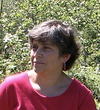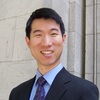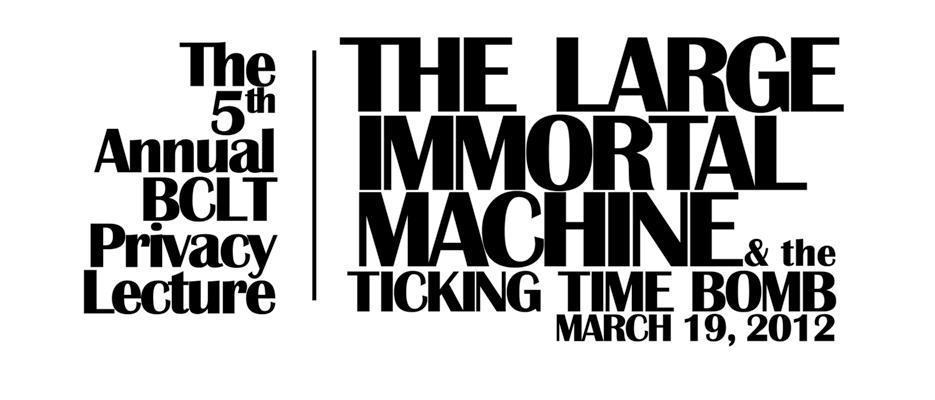March 19, 2012
Bancroft Hotel
Berkeley, CA
Presented by Dr. Susan Landau with responses from Dr. Rolf H. Weber and Dr. Felix Wu.
Moderated by Professor Paul Schwartz.
The Large Immortal Machine and the Ticking Time Bomb
Designers of the first electronic telephone switches nicknamed them the “large immortal machines” because switches last decades. The 1994 Communications Assistance for Law Enforcement Act (CALEA) requires that all digital-switched telephone networks be built wiretap enabled; the law took longevity of switches into account by authorizing funding to update switches in place. But by failing to analyze how threat models would change in a highly connected IP-based world, CALEA did not consider the longevity of switches prospectively. As an architected security breach, CALEA compliance is a ticking time bomb. Alleviating this is the subject of this talk.
Schedule
Registration 3:00 – 3:30 pm
Presentation 3:30 – 5:30 pm
Reception 5:30 – 6:30 pm
2.0 hours of CLE credit will be available to attendees.
The 5th Annual Privacy Lecture is made possible by a generous gift from Google, Inc.


Dr. Susan Landau
Susan Landau studies the interplay between privacy, cybersecurity and public policy. She has briefed Congress on a variety of issues, including digital rights management and security and privacy of digital identity systems. She is currently a visiting scholar at Harvard University and was a fellow at the Radcliffe Institute for Advanced Study at Harvard in 2010-2011. Landau had previously been a distinguished engineer at Sun Microsystems, and before that, she taught computer science at the University of Massachusetts and Wesleyan University. Her book Surveillance or Security? The Risks Posed by New Wiretapping Technologies was published by MIT Press in spring 2011. She is also the coauthor, with Whitfield Diffie, of Privacy on the Line: the Politics of Wiretapping and Encryption (MIT Press, 1998; revised 2007).
Landau is the recipient of a 2008 Women of Vision Award, a fellow of the American Association for the Advancement of Science, and a fellow of the Association for Computing Machinery. She is a member of the Computer Science and Telecommunications Board of the National Academies and of the advisory committee for the Computer and Information Science and Engineering Directorate of the National Science Foundation. She received her PhD from the Massachusetts Institute of Technology, her MS from Cornell University and her BA from Princeton University.

Prof. Paul Schwartz
Paul Schwartz, Professor of Law at UC Berkeley School of Law, is a leading international expert on information privacy, copyright, telecommunications and information law. He has published widely on these topics. In the US, his articles and essays have appeared in periodicals such as the Harvard Law Review, Yale Law Journal, Stanford Law Review, Columbia Law Review, Michigan Law Review, and N.Y.U. Law Review. His books include Privacy Law Fundamentals (2011)(co-author Daniel Solove) and Information Privacy Law (4th ed., 2011)(co-author Daniel Solove). Professor Schwartz has provided expert opinions, advice, and testimony to numerous governmental bodies in the United States, Canada, and Europe. He has also served as an organizer of the Privacy Law Salon, which is held annually in Miami.

Dr. Rolf H. Weber
Rolf H. Weber is a Professor for Civil, Commercial and European Law at the University of Zurich Law School in Switzerland. He studied at the University of Zurich where he was admitted as an attorney, wrote his doctoral thesis and obtained his doctor degree in 1979.
He was a visiting scholar at the Harvard Law School from 1980-1981. Upon his return he worked as an attorney-at-law and lecturer at the University of St. Gallen and Berne, while he finished his habilitation. Since 1995 he has been a Professor at the University of Zurich and since 2000 a visiting Professor at the University of Hong Kong, teaching and publishing in civil, commercial and European law with special topics in Internet, media and competition law, international finance and trade regulation. Further, he is director of the European Law Institute and the Center for Information and Communication Law at the University of Zurich as well as delegate for international relations of the Law Faculty of the University of Zurich.
Since 2008 Prof. Dr. Rolf H. Weber has been a member of the Steering Committee of the Global Internet Governance Academic Network (GigaNet) as well as a member of the European Dialogue on Internet Governance (EuroDIG). Since 2009 he has been a member of the High-level Panel of Advisers of the Global Alliance for Information and Communication Technologies and Development (GAID). In addition, he is engaged as an attorney-at-law and as a member of the editorial board of several Swiss and international legal periodicals. He is a member of the panelists of the WTO and participates as judge in ELSA moot court on WTO law on a regular basis.

Dr. Felix Wu
Felix Wu is an Assistant Professor at the Benjamin N. Cardozo School of Law. He received his A.B., summa cum laude, in computer science from Harvard University, and both his Ph.D. in computer science and J.D. from the University of California at Berkeley. After law school, he was an associate first at Covington & Burling in San Francisco and later at Fish & Richardson in Boston, and he clerked for Judge Sandra L. Lynch of the U.S. Court of Appeals for the First Circuit. His research and teaching focuses on Internet law, privacy, freedom of speech, and intellectual property.
